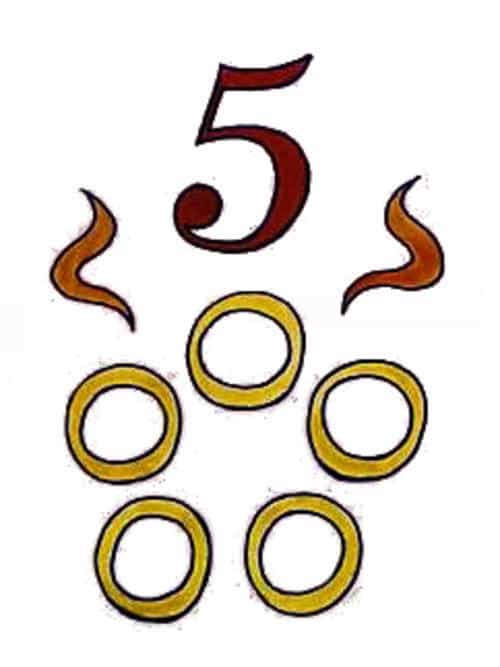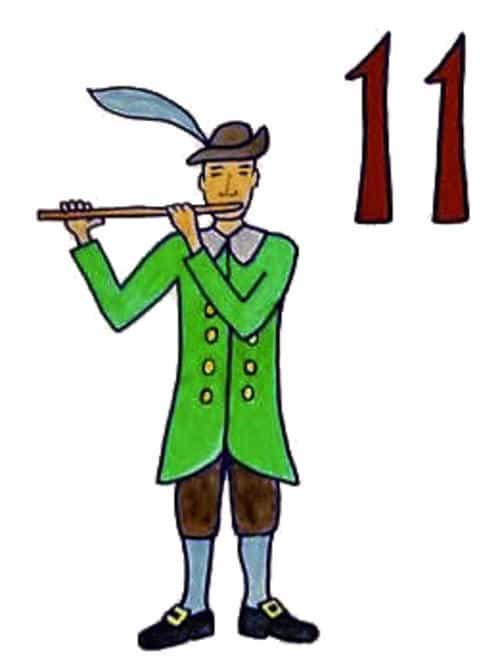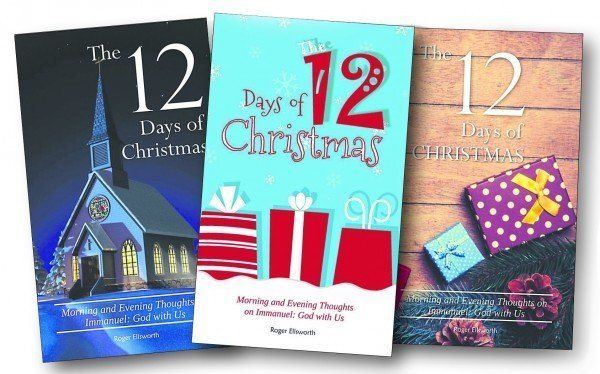The baby lying in Bethlehem’s manger on that first Christmas so long ago was none other than the King of kings and the Lord of lords.
We must say this because the angel Gabriel said it to Mary in no uncertain terms (Luke 1:31-33). The wise men, who journeyed far to find Jesus, made it clear that they were searching for the King of the Jews (Matthew 2:2).
Did they have a complete and accurate understanding of Jesus’ kingship? Probably not. But the Holy Spirit of God had given them enough illumination to know that Jesus was born, not only to be a king, but a very special kind of king.
The gifts they brought to Jesus speak volumes. There was frankincense, myrrh and gold. Strange gifts for a baby you say? Not for this baby! Frankincense (pure incense) was something offered to God. Myrrh was a burial spice. And gold was a gift appropriate for a king.
Did they wrap their gifts? No. But wrapped in their gifts was a ton of truth. They had found the baby who was God in human flesh, the baby who had come to this earth in our humanity to die for sinners. They had found the baby who was King over all.
King Jesus
Origen was surely correct in saying of the gifts the wise men gave Jesus, gold, as to a king; myrrh, as to one who was mortal; and incense, as to God’. The very fact that the wise men worshipped Jesus tells us a great deal. No ordinary baby, this baby! No ordinary king, this king!
But we haven’t gone far enough if we merely assert the kingship of Jesus. We must ask: what kind of king? Herod saw in the baby of whom the magi spoke, a rival to his own throne.
If Jesus had been born a king, he must be the same kind of king as Herod himself — the king of a temporal realm. Herod could conceive of no greater king than an earthly king and no greater kingdom than an earthly kingdom, yet he could not possibly have been more mistaken. Yes, Jesus was a king, but not at all like Herod! Jesus did not come to be merely the temporary king of a temporary kingdom. And he certainly did not come to rule his subjects with the cruelty and heartlessness that was Herod’s.

One day, Jesus himself would say to Pilate, ‘You say rightly that I am a king. For this cause I was born, and for this cause I have come into the world, that I should bear witness to the truth. Everyone who is of the truth hears my voice’ (John 18:37).
Three words should spring to our minds when we think of King Jesus and his kingdom: spiritual, universal, eternal.
Spiritual
Jesus sets his kingdom up in the hearts of his people, by freeing those hearts from the dark kingdom of Satan. Jesus enlightens the minds of sinners to understand the truth about their sins and about his redeeming work on the cross.
He inflames their affections, so they no longer love sin but rather love him. He enlivens their dead wills so they can receive him as their Lord and Saviour.
Universal
Jesus’ kingdom is destined to be universally known. It often looks now as if the kingship of Jesus is going to come to nought. Evil is advancing so aggressively and rapidly. Christianity seems to be losing whatever influence it once had.
Satan is ever eager and glad to prompt his followers to heap scorn and ridicule upon Jesus. The invisible king of an invisible kingdom! It seems to be absurd. But both will soon become very visible and plain.
The invisible king is going to return with the clouds of heaven, and ‘every eye will see him’ (Revelation 1:7). Then the laughter and mockery will come to a screeching halt, and every knee will bow before King Jesus and every tongue will confess that he is Lord of all (Philippians 2:9-11).
Eternal
Jesus’ kingdom will last for ever (Luke 1:33). Kingdoms here come and go. Kingdoms that once were hailed as being invincible have come tumbling down and turned to ashes. It will not be so with the kingdom of Jesus.
His kingdom will completely fulfil the prophecy of Daniel 2:44: ‘And in the days of these kings the God of heaven will set up a kingdom which shall never be destroyed; and the kingdom shall not be left to other people; it shall break in pieces and consume all these kingdoms, and it shall stand forever’.

We never adequately celebrate Christmas, if we do not celebrate the kingship of Jesus, taking as our own the words of Charles Wesley:
‘Born Thy people to deliver,
Born a child, and yet a King,
Born to reign in us forever,
Now Thy gracious kingdom bring.
By Thine own eternal Spirit
Rule in all our hearts alone;
By Thine all-sufficient merit
Raise us to Thy glorious throne.’
Responses
What should our response be to King Jesus? That depends on which of two categories we are in (and, by the way, all of the human race falls into one or the other of these categories). In the kingdom of God, there is no distinction between rich and poor, educated and uneducated.
As far as the kingdom of God is concerned, we are either believers in the Lord Jesus or unbelievers. We might say we are either submitters to King Jesus or non-submitters. There is no middle ground.
What does the Bible say to those who have not submitted to the King? It very plainly tells us that we must repent of our sins and trust in the Lord Jesus. In other words, the Bible calls all unbelievers to repentance and faith.
Repentance
What is repentance? Perhaps the best definition is found here: ‘I thought about my ways, and turned my feet to your testimonies’ (Psalm 119:59). Repentance is thinking again and turning.
So many people these days are so very sure of themselves when it comes to the Lord Jesus Christ. They are so very quick to dismiss him and to decide that they do not want him ruling over them. Repentance means we stop dismissing Jesus. We come to understand our sins and the judgment those sins deserve. We come to understand that Jesus is the only hope for sinners. We come to a radically different conclusion about Jesus and turn to him.
Faith
Saving faith is not merely knowing the facts about Jesus, or even just agreeing with those facts. It is committing ourselves to Christ as the only one who can save us from our sins and the eternal condemnation they deserve.

It is resting our hope for forgiveness entirely on what the Lord Jesus Christ did for sinners in his life and death. Here is how faith speaks: did the Lord Jesus live a life of perfect obedience to God; did he live the life that I have refused to live? Then I will not trust in my own good works or any righteousness that I can produce, but I will take as mine the righteousness that Jesus has produced for sinners.
Did the Lord Jesus go to the cross to receive the wrath of God in the place of sinners? Then I will take what he did on that cross as my own, so I will never have to face that wrath myself.
Worship
How should believers in Christ respond to his kingship over them? We should do as the wise men did, namely, worship the Lord Jesus.
What is worship? It is ascribing worth, excellence or value to the Lord. Believers should do this, every single day of their lives. And, while the Lord delights in the private worship of his people, he delights even more in their public worship (Psalm 87:2).
At Christmas-time we celebrate Christ’s coming to this earth in our humanity. We might say Christmas is the celebration of the greatest person travelling the greatest distance to do the greatest thing.
The greatest person is our King, Jesus. The greatest distance is the distance from heaven to a lowly stable in lowly Bethlehem. The greatest thing? The author of Hebrews gives us the answer in four words: ‘so great a salvation’ (Hebrews 2:3).
Yes, Jesus came to this earth to provide sinners with a great salvation.
Roger Ellsworth



